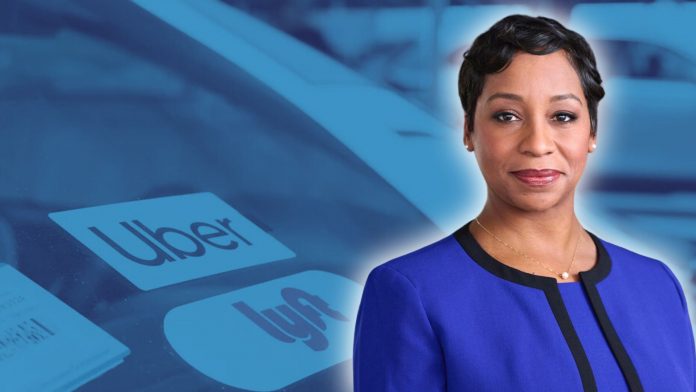Massachusetts Attorney General Andrea Joy Campbell has brought Uber Technologies and Lyft to trial over allegations of misclassifying drivers as independent contractors. The trial in Boston is part of broader legal battles over gig worker status in the state and nationwide.
In a courtroom drama unfolding in Boston, Campbell has launched a trial against the ride-hailing giants over the contentious issue of driver classification. The trial commenced on May 13 in Suffolk County Superior Court, marking a crucial legal battle in the state’s ongoing scrutiny of gig worker status.
Campbell’s argument revolves around whether Uber and Lyft drivers should be classified as independent contractors or employees under state law. She contends that categorizing them as employees is necessary to ensure they receive essential benefits such as minimum wage, overtime pay, and earned sick time. This trial is part of broader efforts in Massachusetts to address concerns about worker protections in the gig economy.
The defendants have pushed back against the state’s allegations. They assert that their model provides crucial flexibility for drivers, allowing them to work part-time and tailor their schedules to accommodate other commitments. Lyft’s lawyer, Felicia Ellsworth, emphasizes that the companies prioritize the needs and preferences of their drivers, framing the relationship as one where the companies work for the drivers, not the other way around.
This legal showdown underscores the high stakes involved, with potential penalties looming if the companies are found guilty of misclassification. The trial’s outcome could have far-reaching consequences for Uber and Lyft, the broader gig economy landscape in Massachusetts, and potentially across the nation.
The companies defend their model, stating that drivers value the flexibility of being independent contractors, allowing them to work part-time and tailor their schedules around other commitments. Lyft’s lawyer, Felicia Ellsworth, emphasizes that the companies work for the drivers, not vice versa, while Uber’s counsel, Michele Maryott, underscores the importance of flexibility for drivers.
Nevertheless, if the companies misclassify their drivers, the trial outcome could significantly impact them, potentially resulting in penalties. Despite these changes, GM remains committed to Cruise’s success, emphasizing safety and financial viability as top priorities.



